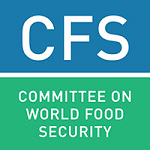IFOAM – Organics International is a worldwide organization advocating for organics, with over 700 affiliates in more than 100 countries and territories.

The Center for International Forestry Research (CIFOR) is a non-profit scientific research organization that conducts research on the use and management of forests with a focus on tropical forests in developing countries. CIFOR, which merged with World Agroforestry on Jan. 1, 2019, is the forestry and agroforestry research center of the Consultative Group on International Agricultural Research (CGIAR), a network of 15 research centers around the world that focus on agricultural research for sustainable development, working closely with governments and other partners to help develop evidence-based solutions to problems related to sustainable agriculture and natural resource management.
The Trade Knowledge Network (TKN) is the collaboration of research institutions in developed and developing countries located in Africa, Asia, Europe and the Americas. The Trade Knowledge Network is aimed at building long-term capacity to address issues of trade and sustainable development in developing country research institutions, non-governmental organizations and governments through increased awareness, knowledge and understanding of the issues. The Trade Knowledge Network is not to be confused with the Trade Knowledge Exchange (TKE), a network of 6 organisations providing expert analysis on the key issues around the post-Brexit trade environment in the UK and globally.
The Trillion Tree Campaign is a project which aims to plant one trillion trees worldwide. It seeks to repopulate the world's trees and combat climate change as a nature-based solution. The project was launched at PlantAhead 2018 in Monaco by Plant-for-the-Planet. In the fall of 2018, the project's official website was published in order to register, monitor, and donate trees to reforestation projects around the world. The campaign is a continuation of the activities of the earlier Billion Tree Campaign, instigated by Wangari Maathai, who founded the Green Belt Movement in Africa in 1977.

The Committee on World Food Security (CFS) was established in 1974 as an intergovernmental body to serve as a forum in the United Nations System for review and follow-up of policies concerning world food security, including any and all production, physical, and economic access to food. It was reformed in 2009 to become a multi stakeholder committee. SIRPI constitutes a key role in achieving the UN's SDG No.2.

The International Day of Forests was established on the 21st day of March, by resolution of the United Nations General Assembly on November 28, 2013. Each year, various events celebrate and raise awareness of the importance of all types of forests, and trees outside forests, for the benefit of current and future generations. Countries are encouraged to undertake efforts to organize local, national, and international activities involving forests and trees, such as tree planting campaigns, on International Day of Forests. The Secretariat of the United Nations Forum on Forests, in collaboration with the Food and Agriculture Organization, facilitates the implementation of such events in collaboration with governments, the Collaborative Partnership on Forests, and international, regional and subregional organizations. International Day of Forests was observed for the first time on March 21, 2013.

The International Institute for Sustainable Development (IISD) is an independent think tank founded in 1990 working to shape and inform international policy on sustainable development governance. The institute has three offices in Canada - Winnipeg, Ottawa, and Toronto, and one office in Geneva, Switzerland. It has over 150 staff and associates working in over 30 countries.

The Climate and Development Knowledge Network (CDKN) works to enhance the quality of life for the poorest and most vulnerable to climate change. CDKN does this by combining research, advisory services and knowledge management in support of locally owned and managed policy processes. It works in partnership with decision-makers in the public, private and non-governmental sectors nationally, regionally and globally.

The United Nations created 17 world development goals called the Sustainable Development Goals (SDGs). They were created in 2015 with the aim of "peace and prosperity for people and the planet, now and into the future."

The International Renewable Energy Agency (IRENA) is an intergovernmental organization mandated to facilitate cooperation, advance knowledge, and promote the adoption and sustainable use of renewable energy. It is the first international organisation to focus exclusively on renewable energy, addressing needs in both industrialised and developing countries. It was founded in 2009 and its statute entered into force on 8 July 2010. The agency is headquartered in Masdar City, Abu Dhabi. The Director-General of IRENA is Francesco La Camera, a national of Italy. IRENA is an official United Nations observer.

The Economics of Land Degradation (ELD) Initiative is a global initiative which aims to increase awareness of the benefits of sustainable land management and economic consequences of land degradation.

The Global Landscapes Forum (GLF) is a multi-stakeholder forum that facilitates participation in landscape approaches.

The Global Center on Adaptation (GCA) was founded on 18 September 2018. Hosted by the Netherlands, GCA engages in policy activities, research, communications, and technical assistance to government and the private sector, policy development, research, advocacy, communications, and partnerships. GCA's floating headquarters is hosted by the Netherlands in Rotterdam, with regional offices in Africa, South Asia, and Asia Pacific.
The Program on Forests (PROFOR) was a multi-donor trust fund for forests and poverty reduction administered by the World Bank. It began at the United Nations Development Programme in 1997 and moved to the World Bank in 2002. It closed in June 2020, replaced by a new trust fund with a landscape focus, PROGREEN.
Climate change in Liberia causes many problems as Liberia is particularly vulnerable to climate change. Like many other countries in Africa, Liberia both faces existing environmental issues, as well as sustainable development challenges. Because of its location in Africa, it is vulnerable to extreme weather, the coastal effects of sea level rise, and changing water systems and water availability. Climate change is expected to severely impact the economy of Liberia, especially agriculture, fisheries, and forestry. Liberia has been an active participant in international and local policy changes related to climate change.

P. K. Ramachandran Nair is an Indian American agricultural scientist, Distinguished Professor of Agroforestry and International Forestry at the School of Forest Resources and Conservation, University of Florida. He is known for his pioneering contributions to the science of agroforestry, for which he received global recognition including the Humboldt Prize (2006). The specific areas of his research include: agroforestry in the tropics and subtropics, integrated farming systems, soil carbon sequestration and climate change mitigation, ecosystem services, and soil fertility management. He has written over 200 peer-reviewed articles, 17 books and over 75 book chapters.

Global Goals Week is a shared commitment between a coalition of over 160 partners across all industries, which mobilizes annually in September to bring together communities, demand urgency, and supercharge solutions for the Sustainable Development Goals (SDGs). It was founded in 2016 by the United Nations Foundation, Project Everyone, and the United Nations Development Programme (UNDP). It is timed to coincide with the UN General Assembly "High-Level Week" in New York. The week includes events, summits, conferences, forums, workshops, pledges, and other activations in New York, around the world, and online. It usually runs alongside Climate Week NYC, the annual conference of Goalkeepers, Bloomberg Global Business Forum and many other high-level events.

The "Sustainable Development Goals and Australia" describe how Australia participates in the Sustainable Development Goals (SDGs) process. The SDGs are a collection of 17 global goals designed to be a "blueprint to achieve a better and more sustainable future for all". The SDGs, set in 2015 by the United Nations General Assembly and intended to be achieved by the year 2030, are part of a UN Resolution called "The 2030 Agenda". The targets and indicators for the SDGs are included in the UN Resolution adopted by the General Assembly two years later on 6 July 2017.
Aster Afwork GebrekirstosFAASTWAS is an Ethiopian scientist and a professor of agroforestry at World Agroforestry Centre (ICRAF).
EcoAgriculture Partners is a non-profit organization that develops and implements integrated landscape management strategies for sustainable agriculture, food security, livelihood improvement, climate change mitigation and adaptation and biodiversity conservation. The organization is based in Washington D.C. and operates internationally.












